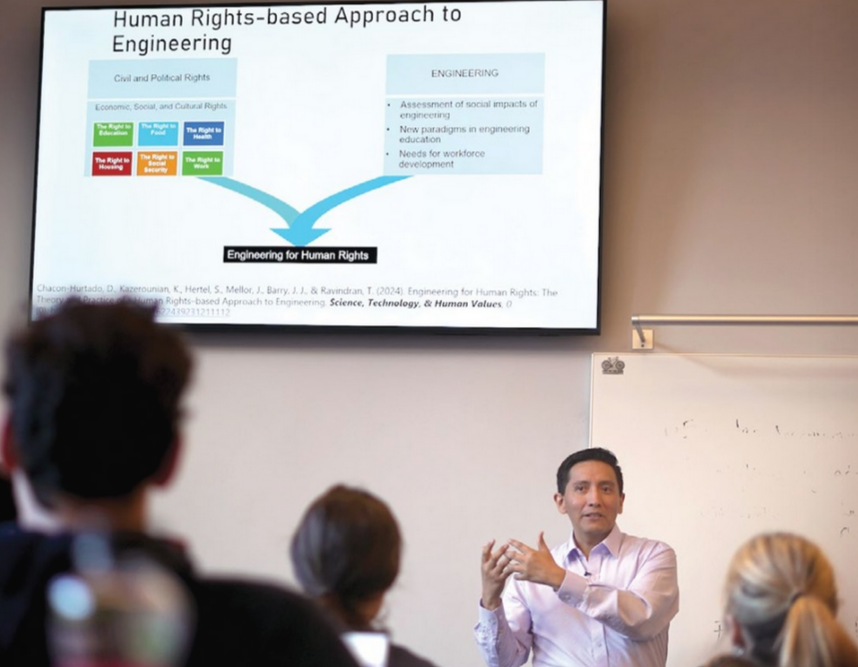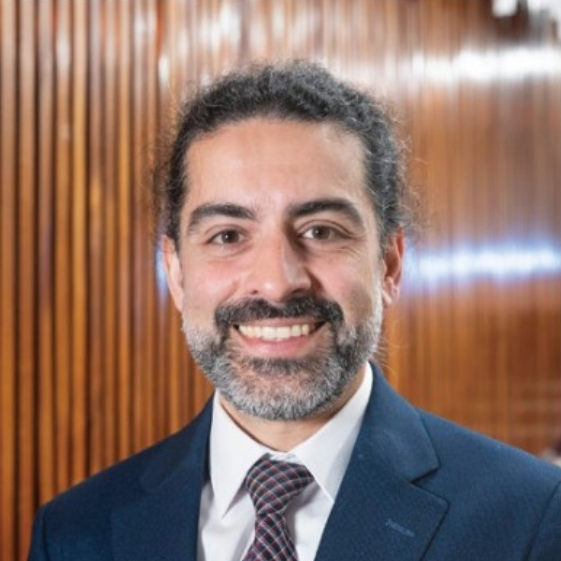 While there has been extraordinary engineering education happening at UConn since 1916, the field of engineering education is its academic study. A Ph.D. in engineering education from UConn will prepare students with the skills and competencies needed to conduct high-quality educational research in the context of engineering programs at both the pre- and post-secondary level. Graduates from the Engineering Education program will be well qualified to work in academic, industrial, or governmental settings, and excel at identifying, creating, and expanding connections between engineering and the social sciences.
While there has been extraordinary engineering education happening at UConn since 1916, the field of engineering education is its academic study. A Ph.D. in engineering education from UConn will prepare students with the skills and competencies needed to conduct high-quality educational research in the context of engineering programs at both the pre- and post-secondary level. Graduates from the Engineering Education program will be well qualified to work in academic, industrial, or governmental settings, and excel at identifying, creating, and expanding connections between engineering and the social sciences.
Engineering education is inherently cross-disciplinary. At UConn, which boasts 14 schools and colleges, students are encouraged to take relevant courses across disciplinary silos based on their research interests.
By completing a Ph.D. in engineering education, graduates will be able to:
- Conduct high-quality educational research and/or assessment and evaluation in a variety of settings, including higher education, K-12 settings, non-profits, and private industry.
- Synthesize information from multiple fields to contribute to knowledge generation at the intersection of engineering and the social sciences.
- Bring a socio-cultural perspective of engineering work with a focus on justice, diversity, equity, and inclusivity to whatever field they choose to work in.
- Integrate evidence-based practices from engineering education research into educating the next generation.
Ph.D. Requirements
Students are required to complete a minimum of 37 credits, distributed as follows:
Engineering Education Core: 13 Credits
- ENGR 5610 – Foundations of Engineering Education – 3 credits
- ENGR 5620 – Power and Politics of Engineering Education – 3 credits
- ENGR 6901 – Engineering Education Seminar - 1 credit
- EPSY/EDCI – Theories in Education course from list - 3 credits
- ENGR 5410 – Scientific Communication – 1 credit
- ENGR 5420 – Engineering Internships and Careers in Industry – 1 credit
- ENGR 5430 – Teaching Engineering: Communication and Pedagogy – 1 credit
Practicum: 3 Credits
- CE/ENVE 6920 – Practicum – 3 credits
- Practical experience in classroom teaching with mentoring from a member of the graduate faculty.
Educational Research Methods Core: 12 Credits
- EDCI 6000 - Qualitative Methods of Educational Research – 3 Credits
- EPSY 5605 – Quantitative Methods in Research 1 – 3 Credits
- EPSY 5607 – Quantitative Methods in Research 2 – 3 Credits
- Research methods elective – 3 credits
Engineering Education Specialization: 9 Credits
Depending upon their background and career plans, students may choose from an existing specialization, made up of coursework in related areas, or, with the approval of their Major Advisor, select coursework with a coherent theme that supports their research or career goals.
- Engineering Field Specialization: 9 credits in discipline-based courses (e.g. CHEG, ME, ECE) at the 5000-level or higher chosen in consultation with the Major advisor.
- Advanced Methods Specialization: 9 credits (outside of the Methods Core) focused on advanced educational research methods. Students may select from EDCI, RMME, EPSY methods courses or others in consultation with their Major Advisor.
- Theories in Education/Learning Science Specialization: 9 credits focused on interdisciplinarity, theories of knowledge, or epistemology. Students may select from Theories in Education list specified in the catalog, or other courses in consultation with their Major Advisor.
- Engineering and Human Rights: 9 credits of coursework in this area as approved by the Major Advisor and consultation with EHRI faculty.
- Individualized Specialization: 9 credits of coursework in a related area or theme as approved by the Major Advisor.
 The Ph.D. in Engineering Education does not have a foreign language requirement. Ph.D. students must maintain a cumulative GPA of at least 3.0 across all coursework. For students entering with a Master’s degree, up to 15 credits of previous graduate coursework may be counted toward the Ph.D.
The Ph.D. in Engineering Education does not have a foreign language requirement. Ph.D. students must maintain a cumulative GPA of at least 3.0 across all coursework. For students entering with a Master’s degree, up to 15 credits of previous graduate coursework may be counted toward the Ph.D.
All Ph.D. students must also complete at least 15 credits of GRAD 6950 (Doctoral Dissertation Research). All full-time Ph.D. students must enroll in the one-credit seminar course, ENGR 6901, each term they are in the program.
Qualifying Exam and Dissertation: Ph.D. students must pass a qualifying examination as administered by faculty affiliated with the Engineering Education graduate program. Ph.D. candidates must prepare and orally defend a dissertation proposal, as well as prepare and publicly defend the Ph.D. dissertation.
The dissertation research must generate at least three works that are publishable in a peer-reviewed journal or conference appropriate to the field, and at least one of these should be a first-author publication. For multiple author manuscripts, the manuscript must be accompanied by a brief explanation of the student's role in the manuscript. Exceptions can be made for non-first author manuscripts in which the student has contributed heavily with approval by the Major Advisor.
This program is offered by the College of Engineering.
Engineering Education Faculty – Core Members

Daniel Burkey, Associate Professor
E-Mail: daniel.burkey@uconn.edu
Research: Game-Based and Game-Inspired Education, Chemical Vapor Deposition

Davis Chacon-Hurtado, Assistant Professor

Alexandra Hain P.E., Assistant Professor
E-Mail: alexandra.hain@uconn.edu
Research: Bridge repair using novel materials, computational structural modeling

Desen Ozkan, Assistant Professor
E-Mail: desen.ozkan@uconn.edu
Research: sociotechnical engineering education, offshore wind and sustainable energy development

Stephany Santos, Ph.D. Assistant Professor in Residence

Arash Esmaili Zaghi, P.E., S.E. Professor
E-Mail: arash.esmaili_zaghi@uconn.edu
Research: Structural Engineering and Applied Mechanics